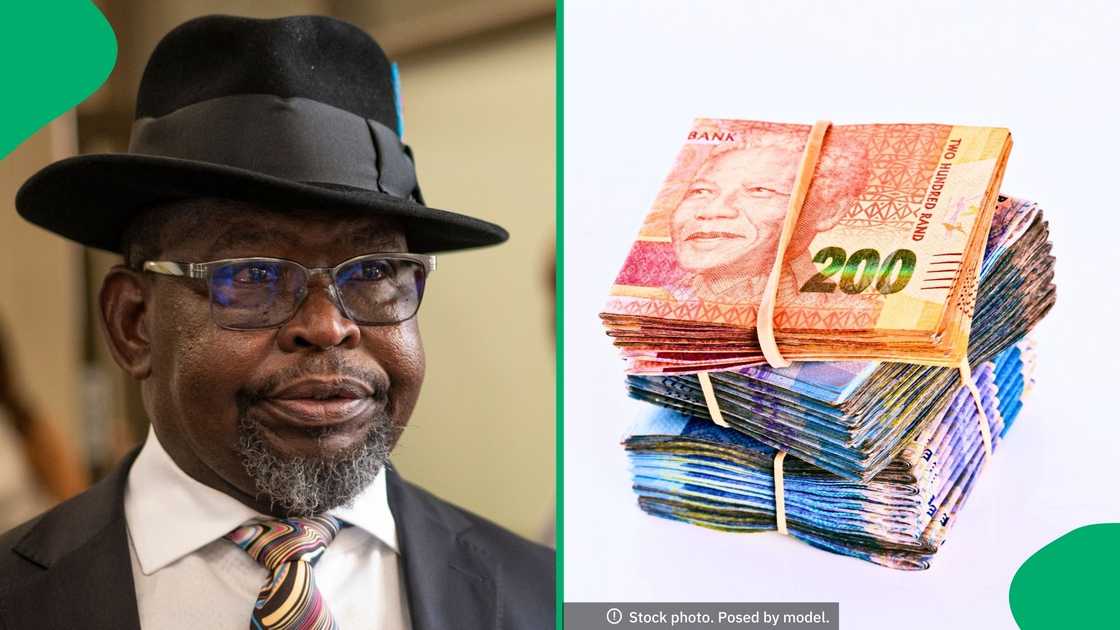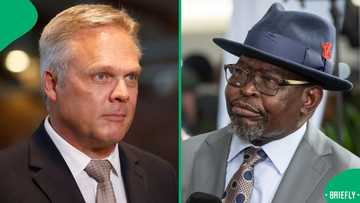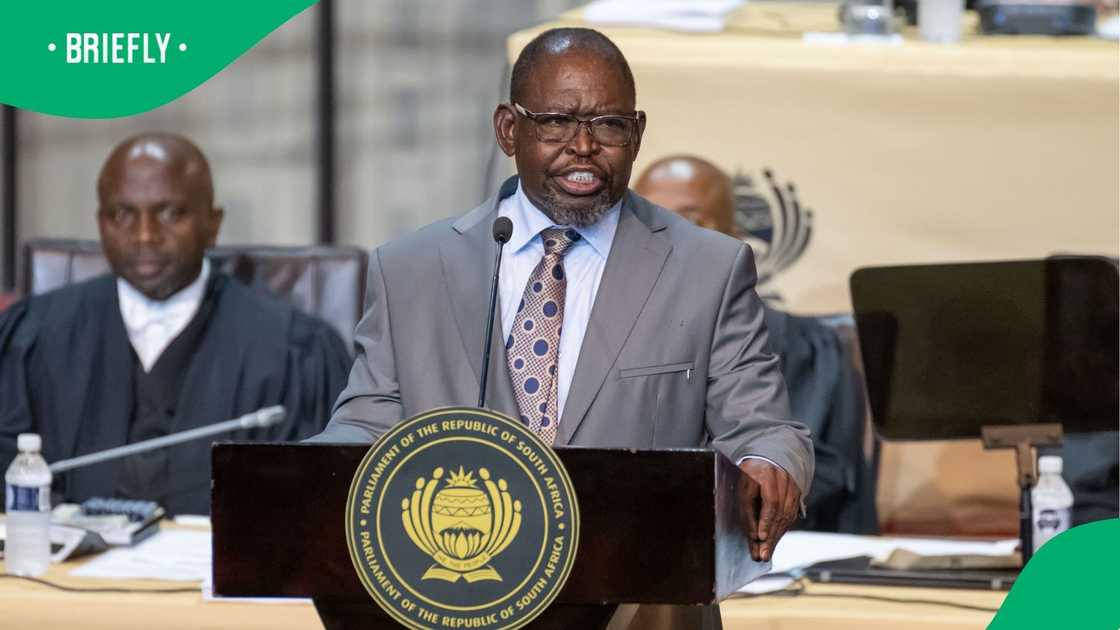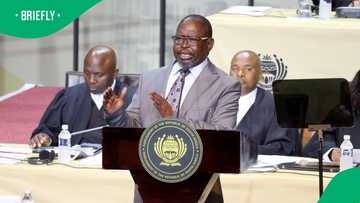South Africa Spends R1.21bn Daily to Service Debt, UNISA Professor Weighs In on Country’s Challenges
- The South African government spends R1.21 billion a day to service its growing debt, the Finance Minister announced
- Enoch Godongwana made the revelation during his budget speech to Parliament in Cape Town on 21 March 2025
- A professor from UNISA spoke about some of the challenges leading to South Africa's high rate of debt
- Professor Eliphas Ndou spoke exclusively to Briefly News about the situation that the country currently finds itself in
Don't miss out! Join Briefly News Sports channel on WhatsApp now!

Source: Getty Images
Briefly News journalist Byron Pillay has dedicated a decade to reporting on the South African political landscape, crime, and social issues. He spent 10 years working for the Northern Natal Courier before transitioning to online journalism.
GAUTENG - The South African government will be spending R1.21 billion a day to service its growing debt.
That was one of the key takeaways from Enoch Godongwana’s 2025 Budget Speech.
The Finance Minister delivered his speech to Parliament at the Cape Town International Convention Centre on 21 March 2025.
PAY ATTENTION: stay informed and follow us on Google News!
South Africa’s debt set to reach unprecedented levels
The budget speech also highlighted that South Africa’s public debt is set to reach unprecedented levels in relation to the Gross Domestic Product (GDP) over the 2025/26 fiscal year. The government will be borrowing an average of R1.6 billion per day due to rising spending demands and insufficient additional revenue.
As detailed by the Budget Review 2025 documents, the government’s gross borrowing requirements increased from R579 billion at the time of the 2024 budget to R588.2bn now.
As a result, the National Treasury needs to raise at least R1.61 billion every day of the year. This is up from the previous R1.58bn it needed.
Finance Minister confident things will improve
Godongwana did share some positive news, stating that the gross borrowing requirement was projected to decline by R30.2 billion between 2024/25 and 2027/28. He indicated that this was mainly due to lower projected spending, adding that the May 2025 Budget Review aimed at stabilising the government’s debt in 2025/26.

Read also
Government relaxes BEE rules for technology sector, SA weighs in as decision opens door for Starlink
He explained that it would be lower as the treasury increased infrastructure investment to boost higher economic growth. You can view his statement below about the debt issue.
UNISA Professor talks South Africa’s debt problem
Speaking exclusively to Briefly News, Eliphas Ndou, a professor of Economics at UNISA, spoke about the rising debt issue.
Ndou noted that the cost of servicing the debt was driven by a variety of factors, including fixed versus flexible interest rates, economic growth, debt-to-GDP ratio, exchange rate, new borrowing, and political uncertainty, to name a few.
“An adverse development on each of these factors can induce a loss in investor confidence, which signals a higher risk premium, which ultimately raises the costs of borrowing,” he noted.
“In South Africa’s case, I think the large debt service cost is driven largely by the volume of debt, the size of new borrowing required, the weak exchange rate, and weaker economic growth.”
How South Africa accumulated so much debt
Ndou noted that one of the huge problems was the exchange rate between the rand and the US dollar. The professor noted that the exchange rate has weakened a lot over several years, making the repayment of dollar-denominated debt more expensive.

Read also
DA welcomes R1 trillion budgeted for infrastructure development, SA concerned funds will be stolen
“In addition, a higher debt-to-GDP ratio is an indicator of the ability to make repayments, making the country a riskier borrower and liable to get a higher interest rate on debt. Furthermore, the economic growth has been very low since 2010,” Ndou said.
He added that this low growth trajectory led to lower tax revenue, which meant the government could not meet most of its obligations.
“Hence, the government resorted to borrowing from the markets to get additional funding,” he further explained.
The professor noted that this was problematic and needed immediate attention from policymakers as it affected the availability of funds that could be used for improving the country’s healthcare, education, and infrastructure.

Source: Getty Images
How debt affects public spending
Ndou explained that the money lost to debt could have been used in other key areas, like funding needed to maintain and upgrade medical facilities and recruit medical personnel.
There has been a lot of criticism of South Africa’s medical sector, as the country faces a shortage of personnel, while many facilities are in poor condition. The education sector also could do with more funding, while funding infrastructure boosts economic growth and boosts job creation opportunities that are needed to lower unemployment.
Minister Godongwana approved R3 trillion to be set aside for infrastructure during his speech, a move welcomed by the Democratic Alliance.
Finance Minister delivers budget speech
Briefly News also reported how Finance Minister Enoch Godongwana delivered his third budget speech this year on 21 May 2025.
The minister announced that the Value-Added tax rate would remain at 15%, but that the zero-rated food basket would disappear.
In an attempt to boost revenue, the general fuel levy will also increase by 16 cents per litre for petrol, and by 15 cents per litre for diesel.
PAY ATTENTION: Follow Briefly News on Twitter and never miss the hottest topics! Find us at @brieflyza!
Source: Briefly News



